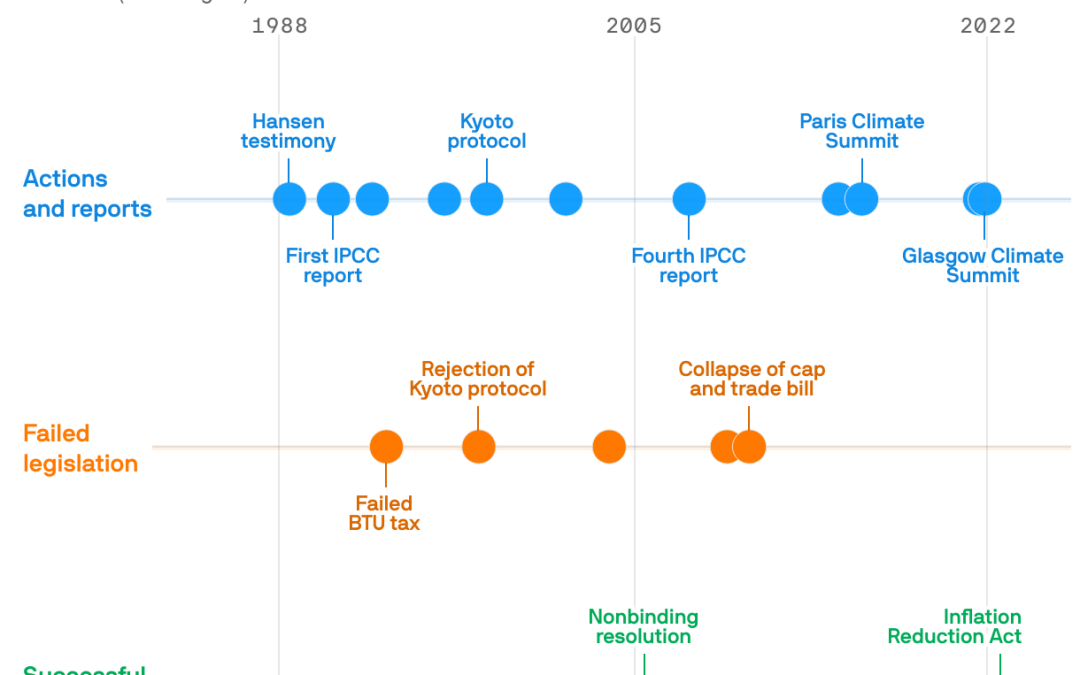The Democrats’ climate bill that the House is expected to take up tomorrow follows decades of legislative failure on climate change, Andrew writes. Why it matters: If the bill passes and heads to President Biden’s desk, experts say it will be because Democrats abandoned the strategy of simply making carbon emissions too painful to maintain — and because Americans are now increasingly aware of the costly impacts of climate change.
The big picture: The bill, by Senate Majority Leader Chuck Schumer (D-N.Y.) and Joe Manchin (D-W.Va.), would inject about $370 billion into the economy for expanding the use of clean energy, boosting climate resilience for communities, and beginning to decarbonize industrial sectors.
Between the lines: It stands in stark contrast to the approach favored by environmental economists and key lawmakers for decades.
- Past attempts to tackle climate change relied on putting a price on carbon through a carbon tax or a so-called cap and trade system. Both would have regulated the global warming gas from the top down, by making such pollution more expensive.
- Notable but doomed attempts to pass climate legislation occurred in 2003 and 2009.
What they’re saying: Jason Grumet, founder and president of the Bipartisan Policy Center, said the environmental movement and lawmakers made a mistake by following the economists.
- “The biggest political malpractice over the last 30 years was buying into the Econ 101 notion that government shouldn’t pick technology, that Congress and elected officials should support a strategy which will be perceived as painful with no political narrative of success,” Grumet told Axios in an interview.
- This changed beginning in 2018, once scientists agreed that more technologies, including as-yet-unproven ones that would draw carbon out of the air, would be needed to avert potentially catastrophic impacts from global warming, Grumet said.
The intrigue: Paul Bledsoe, who served as a climate staffer in the Clinton White House, also pointed to the mistake of designing policies around economic concepts that lacked political support.
- The environmental movement and lawmakers “somehow got bamboozled by the economists,” he said.
- In addition, this bill is also poised to meet a different fate than the many bills buried in the climate legislation graveyard because of the falling costs of clean energy, particularly solar and wind power, Bledsoe said.
- Lastly, a large, diverse and determined social movement also kept up the pressure on Democrats to keep trying to agree to legislation.
The other side: Republican opposition to the new climate bill was unanimous in the Senate and is likely to be nearly so in the House, with lawmakers arguing that it would raise taxes, add to inflation and make fossil fuel development more expensive.

